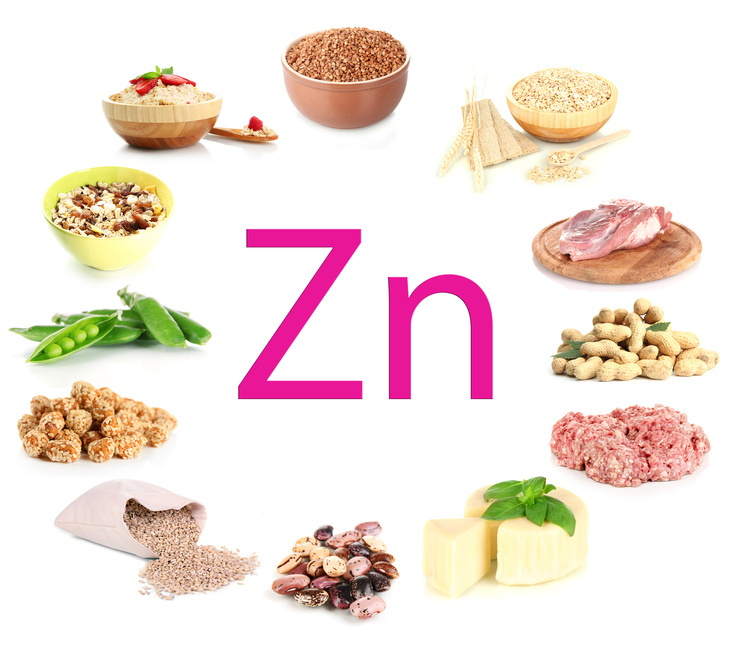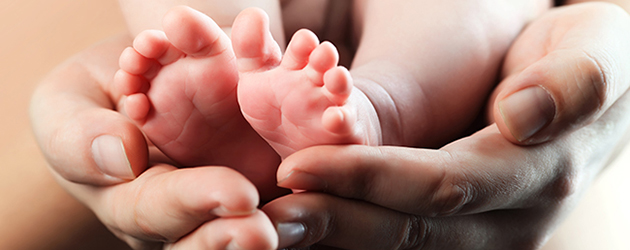There are several benefits of zinc for fertility: for men it is an essential trace element to produce healthy sperm. For women, it is important both before and during pregnancy to both themselves and their developing baby.
Zinc (Zn) is an essential trace element for human nutrition. It is an integral part of many enzyme systems, including DNA polymerase complex and therefore critical for successful human reproduction. It is also a key catalytic agent.
A Zn deficiency can result in hormonal imbalances and impaired cell division. This has direct negative implications for male and female fertility.

Zinc and male fertility
Zinc is found in high levels within sperm, because it is necessary for the synthesis of the sperm membrane and tail. Indeed, studies have shown a correlation between low seminal plasma zinc concentrations and infertility in men[1]“Caldamone, M. et.al. (1979). Seminal zinc and male infertility. Urology, Volume 13, Issue 3, (pp. 280-281).”.
www.amitamin.com/en/fertilsan-m New life deserves the best possible start!We provide the essential building blocks for this.
When the male reproductive system is deprived of Zn, an array of fertility disorders can develop. Without sufficient Zn, normal sperm maturation isn’t possible. As a consequence, sperm lacks the strength and motility to support fertilisation. Furthermore, testosterone levels can also be negatively affected as Zn influences hormone production.
The risk of miscarriage is elevated due to chromosomal defects resulting from insufficient Zn levels.
In one study, researchers investigated the relationship between seminal plasma Zn concentrations and sperm quality of fertile and infertile men[2]Chia, S. et.al. (2000). Comparison of zinc concentrations in blood and seminal plasma and the various sperm parameters between fertile and infertile men. Journal of Andrology, Volume 21, Issue 1, … Continue reading. Study participants included 107 males with unknown causes of infertility and 103 fertile men with pregnant wives at the time of the study. Atomic absorption spectroscopy was used to determine zinc concentration within seminal plasma. Sperm was also analysed for density, motility and viability.
Results
The study found that
- Seminal plasma zinc levels were significantly lower in infertile males compared with fertile males.
- With the exception of semen volume, infertile males had significantly lower semen parameters compared with fertile males.
- There was a significant correlation between sperm density, viability, and motility with seminal plasma zinc concentrations.
This research highlights the link between low Zn levels and decreased male fertility. Conversely, there have been many studies that have demonstrated an improvement in male fertility following Zn supplementation[3]“Abbasi, A. et.al. (1980). Experimental zinc deficiency in man. Effects on testicular function. The Journal of Laboratory and Clinical Medicine, Volume 96, Issue 3, (pp.544-50).”,[4]“Tikkiwal M. et.al. (1987). Effect of zinc administration on seminal zinc and fertility of oligospermic males. Indian Journal of Physiology Pharmacology, Volume 31, Issue 1, (pp. 30-34).”.
Zinc and female fertility
Zinc plays a role in regulating female reproductive hormones, because the synthesis of both oestrogen and progesterone requires Zn. Without this trace element, the resulting hormonal imbalances may reduce fertility due to
- irregular menstruation
- impaired ovarian function. Since Zn is necessary for protein metabolism, egg maturation may be disrupted.
- suboptimal follicle fluid levels, which rely on Zn to transport the egg through the fallopian tubes.
Supporting healthy pregnancies with zinc
Zn is also important during pregnancy itself. A study investigating Zn concentrations in women during their first pregnancy confirmed a correlation between Zn and healthy pregnancies[5]“Jameson, S. (1976). Zinc and copper in pregnancy, correlations to fetal and maternal complications. Acta Medica Scandinavica, Volume 200, Issue S593, (pp. 5-20).”. A total of 84 first-time mothers participated in the study which assessed various aspects of labour and the health of the infant.
Results
The study found that
- Women who experienced complications such as atonic bleeding or abnormal labour were found to have significantly reduced serum Zn levels in early pregnancy.
- Women who gave birth to premature babies had significantly reduced serum Zn levels in early pregnancy.
- One baby was born with a congenital heart defect. The mother recorded the lowest serum Zn concentrations of all the other participants. There were no other abnormal findings.
- Women with normal deliveries and healthy babies had significantly higher serum Zn concentrations compared with the rest of the study participants.
This study suggests that a Zn deficiency may negatively impact labour and foetal development.
Zinc sources
Seafood is one of the best sources of Zn. Other good sources include lamb, chicken, pork, beef, spinach, cashew nuts, pumpkin seeds, mushrooms and beans.
Summary
Zinc is a well-studied trace element. It has very important implications for male and female fertility. Without sufficient Zn concentrations, sperm and egg development is impaired. Low Zn levels are closely associated with infertility and complications during pregnancy.
Using Zinc for sperm motility and DNA protection

Zinc is a powerful male fertility enhancing nutrient, but it is also just one of several so called fertility-nutraceuticals, which improve male fertility in different, complimentary aspects. Clinical research studies have consistently shown that
We have therefore compared all of the top male fertility combination supplements in a transparent, side-by-side evaluation.
VIDEO: How to improve sperm naturally with food
More sperm motility-enhancing male fertility nutrients
Bibliography

Dr. Kooner is Deputy Director of The Advanced Fertility Center of Chicago and has been a Specialist in Fertility Treatment since 1999.
As well as the areas that the clinic specialises in general, he is particularly interested in managing oocyte donation, female same-sex couples, single women having sperm donation and those considering egg freezing.
Dr. Kooner regularly speaks at fertility meetings. He has published in national journals and constantly contributes to the fertility research and publications from Advanced Fertility Center of Chicago.
References
| ↑1 | “Caldamone, M. et.al. (1979). Seminal zinc and male infertility. Urology, Volume 13, Issue 3, (pp. 280-281).” |
|---|---|
| ↑2 | Chia, S. et.al. (2000). Comparison of zinc concentrations in blood and seminal plasma and the various sperm parameters between fertile and infertile men. Journal of Andrology, Volume 21, Issue 1, (pp. 53-57).” |
| ↑3 | “Abbasi, A. et.al. (1980). Experimental zinc deficiency in man. Effects on testicular function. The Journal of Laboratory and Clinical Medicine, Volume 96, Issue 3, (pp.544-50).” |
| ↑4 | “Tikkiwal M. et.al. (1987). Effect of zinc administration on seminal zinc and fertility of oligospermic males. Indian Journal of Physiology Pharmacology, Volume 31, Issue 1, (pp. 30-34).” |
| ↑5 | “Jameson, S. (1976). Zinc and copper in pregnancy, correlations to fetal and maternal complications. Acta Medica Scandinavica, Volume 200, Issue S593, (pp. 5-20).” |
| ↑6 | ”https://humupd.oxfordjournals.org/content/14/3/243.full” |
| ↑7 | ”Imhof, Martin et al., “Improvement of sperm quality after micronutritient supplementation” |








